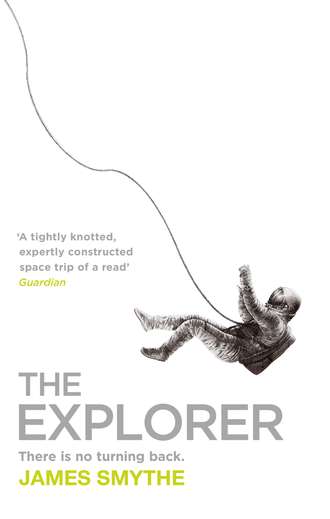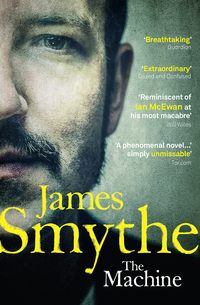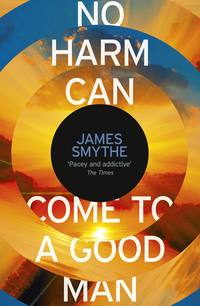
Полная версия
The Explorer
I listen to the crew arguing as they try to revive Arlen, but they give up so quickly, because Emmy says that there’s no coming back when the body is in the state his is. She’s the one who tells them to stop, finally, and she calls the time of death as if this is a hospital. When she does it they all sigh, and Quinn shouts something in anger, and Guy doesn’t even pay attention, it seems, because there are things that need doing. This ship, he would have said if he had been asked, won’t run itself.
‘We should tell Ground Control,’ Quinn says. Nobody disagrees with him. The wait time at that point was only a few minutes, because of how close we still were to home, but I remember that it felt like forever, having to deliver that news. ‘This is the crew of the Ishiguro,’ Quinn says into the computer microphone, ‘and we’ve just come out of the pods, just checking in. Ship is stable, fuel reserves at 93%, which is in line with expectations. Captain Arlen Bester didn’t wake up after stasis, however; attempts to resuscitate him have been unsuccessful. Time of death was called at oh-seven-forty hours.’ He left out all of the details – about his blue skin, his chalky eyes – because there was no need to pass them on. We were warned, when we signed all of our disclaimers and NDAs, hundreds of pages of the things, that the beds could malfunction. It was one of the multitudinous ways that we could die, and DARPA couldn’t – wouldn’t – be held responsible. When Quinn’s finished, he suggests that we say something. We’re already standing around Arlen’s body as if it’s a proper funeral; all that’s missing are the clods of dirt to throw onto the coffin, the priest, the black suits. He turns to the other me, the original me, tells me that I should do it. ‘You’re good with words,’ he says. I remember my speech; I remember how it fell out of my mouth, like I was being sick in fits and bursts.
As the other me talks about Arlen’s beard, about what a cool guy he was, tells stories about stuff that happened in training, I hang onto the wall and wonder once again if I’m completely insane, and if any of this is real at all. I notice my leg, where I hurt it – where I remember the blood, the bone sticking through, so painful – and realize that, even though it still hurts, the wound isn’t sensitive. I wind up my trouser leg, expecting blood, a scab, a gash, but it’s healed. Along the line of my knee is a scar, like a sideways grimace, but it’s healed. I ball my hand to a fist and hit it, trying to see if it flinches with pain, and it does, but it’s only dull, like an echo, a memory of how sharp the pain used to be. As I keep listening to the crew it hurts more and more, until it’s aching again, creasing along the line where it feels slightly healed, where the scar is; until the pain starts creeping up my whole body.
I must have remembered it wrong. I must have. Despite how it looks, after a while it hurts so badly that I’m shaking slightly. The pain gets worse with each passing second. I have no idea how I’ll make it go away, and I shake and moan, because none of this makes any sense.
The crew are running diagnostics, sweeping the ship for anything that might not have been spotted. At the time – and again, now, as I listen to it for the second time in my life, word for word the same – Guy told us it was to make sure that we were safe.
‘Think of this thing as a rubber boat,’ he says. ‘You go for hours along a river that’s calm; it’s great, nothing wrong. You hit some rapids all of a sudden, and it gets a puncture, something tiny, barely even visible; you might not realize. But, you know, you made it through the rapids safe, and you’re alive, so you relax. When you’re then in the huge river, or the sea, in this instance, it doesn’t matter how still it is, how calm and relaxing: if you don’t find that puncture, that could be the thing that kills you.’ We had to search for the puncture, in case it existed. ‘This is nothing to do with Arlen’s death: it’s standard protocol. There’s nothing to worry about, it’s just something we have to do. Back to work, you know? Better to be safe than sorry,’ Guy said. Each member of the crew was assigned a room; each member scoured that room to check its integrity. I put myself behind the boxes, in between them; they’re curved, like a U in the room, a perfect human-sized space for me, and there’s space under them where they’ve been strapped down, where I can hide, like a criminal clinging to the undercarriage of a vehicle, praying he isn’t caught. I hide in there and wait as the door opens and somebody walks around the room. I don’t know who it is, because I don’t look, in case they hear me move. I know that it wasn’t me, because I was checking the main room: it was all I could be trusted with, because what else did I know? I wasn’t like the rest of them.
I first met Emmy months and months before the flight, along with the rest of the crew. There was a bank of seventeen astronauts and pilots that they were going to draw from, all of whom had been training, and all of whom were at various stages of that training; six doctors; four scientists. There were three of us journalists, and we had all done the physical checks, all the psychological profiling: days worth of questions about our lives, our hopes, our fears, our families. We had a week-long camp where we did physical exercises, pushed our bodies and our minds to the absolute limits; and then, at night, we socialized, but not too much. They let us out of our rooms every day for a few hours, kept us moving around the groups to see who we worked best with. There were no phone calls home, and they – a subdivision of DARPA, a government-sponsored conglomeration of companies that was privately funding the space trip – watched everything. It was like a television show, a reality one, where we waited for the viewers to vote us off. They had to make sure that we got along, or that we could work together. I told Elena afterwards that I think they wanted to check that there wasn’t any sexual tension amongst us all, or anything that might breed into aggression. Any emotion that wasn’t just friendly camaraderie was discouraged. They put us in training rooms in our underwear and made us work out; no secrets, no hiding our superficial scars or those slightly saggy love handles.
We would all watch Emmy from across the room, all of us men. I remember meeting Quinn early on – we bonded in that superficial way that men can when they’re slightly embarrassed, in social situations that they don’t know how to deal with. He was less nervous than I, less self-conscious – his body, his manner, they afforded him that privilege, because he was chiselled – and he bolstered me, gave me an extra shot of confidence. He was better looking than I was, but he was one of the cool kids, and my association alone lifted me up. He had the looks, the charm; and I could talk for myself. I was the perfect wingman. I pulled myself together so that, when I stood next to him, I didn’t feel quite as inadequate. We spoke about Arlen’s moustache – it was just that back then, a handlebar, like a stereotypical brigadier in a World War I film – and we spoke about Emmy, about the way that she carried herself.
‘Oh, she’s out of my league,’ I remember Quinn saying, which was a lie, and we both knew it. But he maintained it, I think, for the sake of staying amiable with me. Nobody likes a show-off. I didn’t speak to Emmy that entire week, apart from when we were put in exercises together. It wasn’t until the second week, when they whittled some of the group down, that we got to have a proper conversation.
Most of the crew sit down in the main room and eat. Wanda is showering, because she’s so upset after the death of Arlen that Emmy recommended she try to relax, try to calm down; and the rest are cooking, warming meal bars. I listen as they drink wine – we left with a few bottles, only enough to commemorate a few different occasions, and the champagne for the halfway point, of course – and then they make a film for back home, all crowded around. Ground Control, when they replied, asked us not to mention Arlen; they told us to look happy, to smile, to say cheers, to wish the world the best. We fought about it for a few minutes, but then Guy spoke up, trying to be a voice of reason.
‘It’s no good starting this off with tragedy,’ he said. ‘Think about what we’re meant to represent, okay? Fuck’s sake, think about something other than ourselves.’
‘This is a new age of discovery,’ Quinn said to everybody watching at home, to the millions – billions, if we were lucky – that would be crowded around their TV sets just to see how far we could get, what we could find out here. It was so cheesy, but that helped us believe it, I think. When the recording had stopped and been sent, we spent the evening talking about what we thought everybody at home would think about. I listen as they all talk about their families. We had all lost loved ones, near and dear to us.
‘Wonder if that’s what made us all want to be space cadets,’ Quinn jokes. I remember Emmy laughing especially fake-hard at the joke: she doesn’t let my memory down, and I hear her voice carry down the corridors, through the lining of the ship’s walls, a big laugh, as if barely a care in the world at that point. They talk more about Arlen. I don’t remember it being this miserable; but mourning always looks worse from the outside. Me? I barely remember Arlen now. The other me tells the story of Elena, leaving out key details – why she actually left me, what we said to each other, what happened before I left for the trip – because I don’t want anything to change the way that I’m painted. Guy laughs at me.
Конец ознакомительного фрагмента.
Текст предоставлен ООО «ЛитРес».
Прочитайте эту книгу целиком, купив полную легальную версию на ЛитРес.
Безопасно оплатить книгу можно банковской картой Visa, MasterCard, Maestro, со счета мобильного телефона, с платежного терминала, в салоне МТС или Связной, через PayPal, WebMoney, Яндекс.Деньги, QIWI Кошелек, бонусными картами или другим удобным Вам способом.









